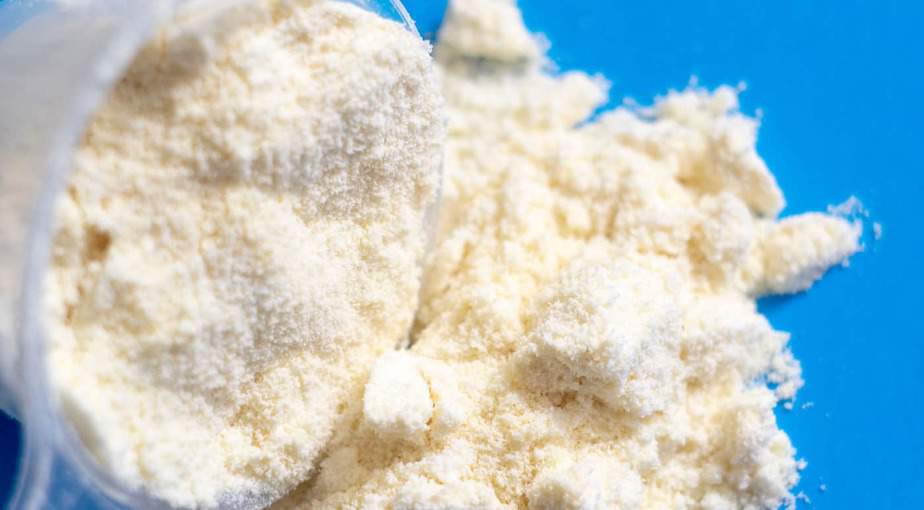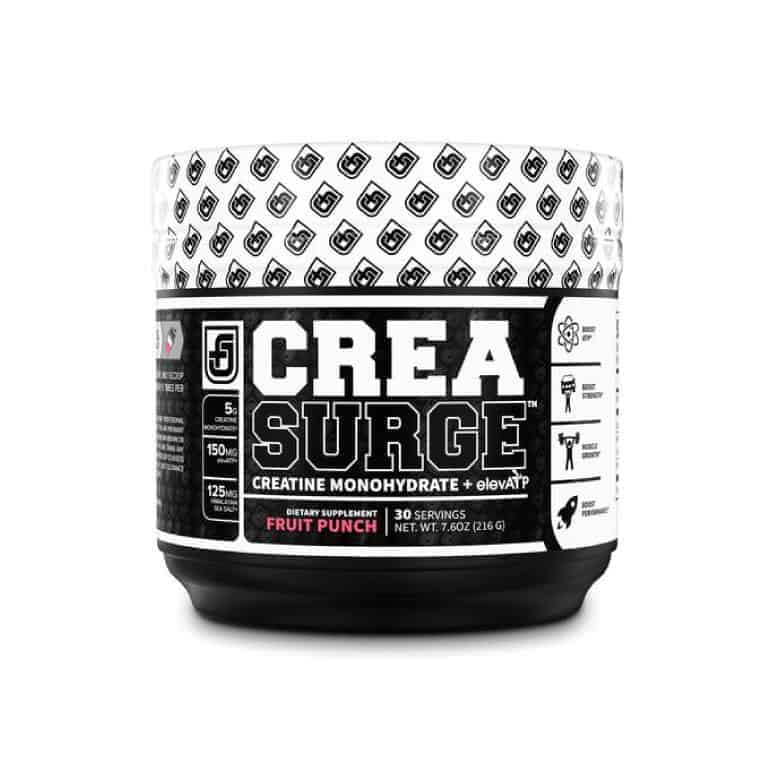To find the best creatine supplements, we consulted fitness enthusiasts and experts on sports nutrition.
From this, we learned that to find the best creatine supplements you need to find a brand that offers the best ingredients. Additionally, people want different things out of their pre workout supplements.
While some care only about bulking up and improved performance, others have different priorities. Some will want pre workout formulas that assist in losing weight, while others will want a balanced formula that includes amino acids.
Key Point: Sifting through all of the available creatine supplements can be a daunting chore. In this guide, we aim to save you time and bring you the best options on the market.
Quick Links
- What is Creatine?
- Health Benefits of Creatine
- Choosing the Right Creatine
- Ranking of the Best Creatine Supplements
- Frequently Asked Questions
The Creatine Supplements We RAVE About
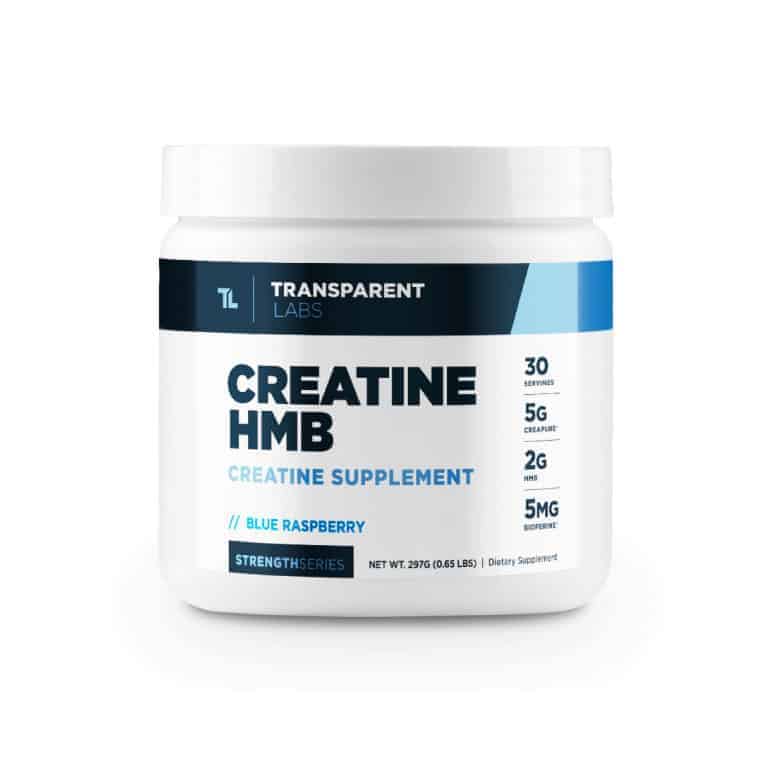
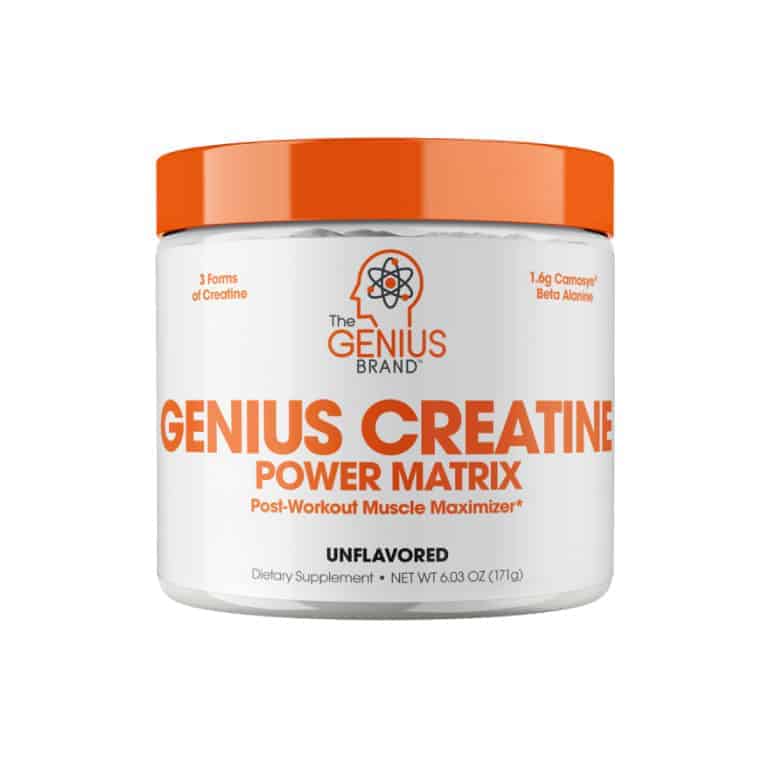
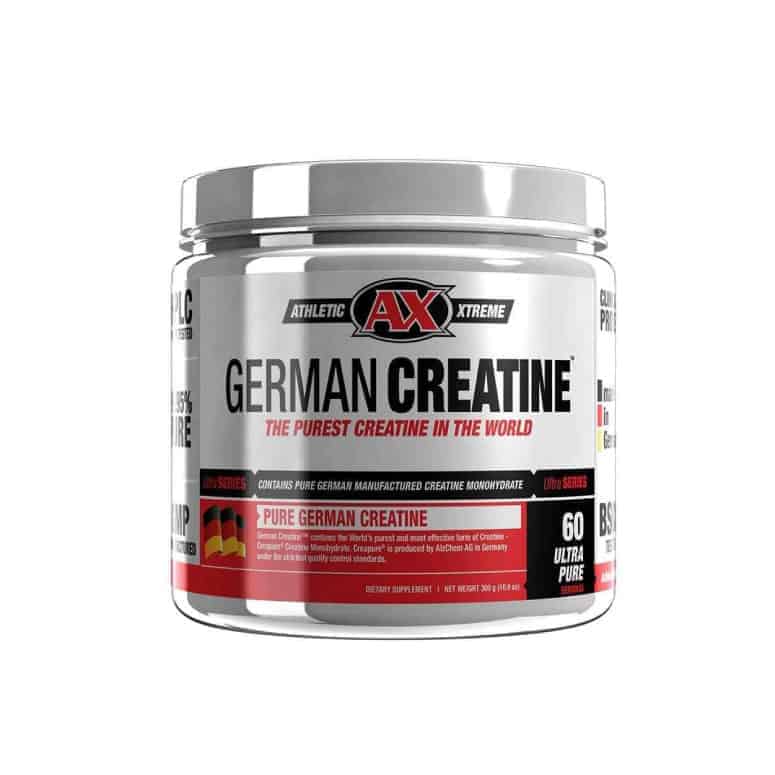
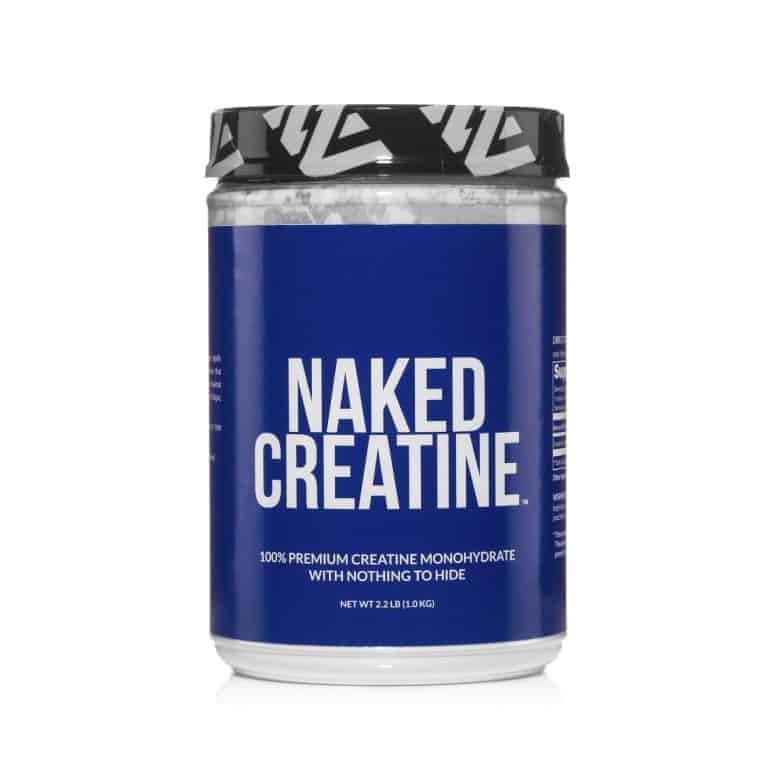
The Best Creatine Supplements

Even as someone who has been researching and writing about dietary supplements like creatine for the better half of the last decade, it was no small task for me to rank the top creatine supplements.
Nevertheless, it was well worth it since creatine supplements are abundant nowadays and the best ones deserve their rightful claim to fame.
A good chunk of the population thinks of creatine as a “bulking supplement,” or even as an anabolic androgenic steroid. The reality is that creatine is as natural and essential for us humans as vitamins and minerals.
This guide will get you up to speed on all things related to creatine and provide insights into the top creatine supplements to take (if you want to reap the benefits of the most proven sports supplement known to man, that is).
Also check out our ranking of the best keto supplements and other overall great pre workouts as well as pre workouts perfect for women.
What is Creatine?
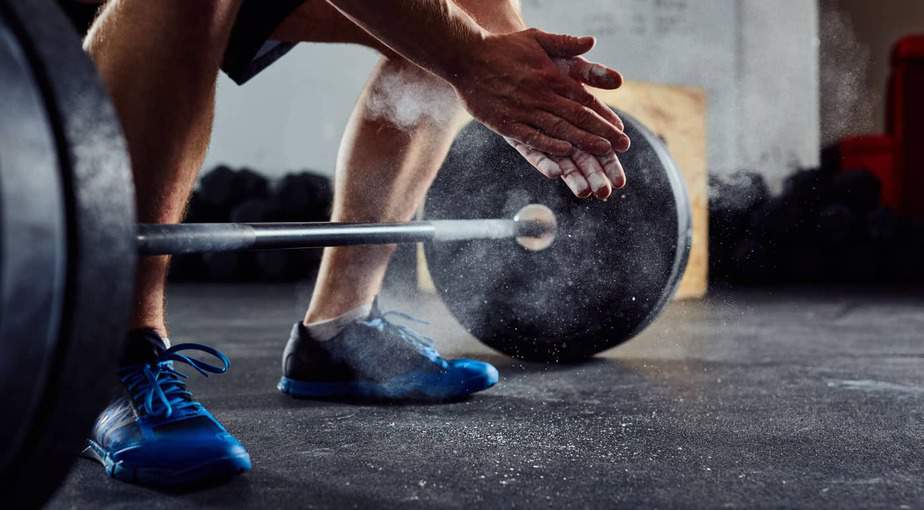
Pure creatine monohydrate is an organic amino acid-like compound found primarily in skeletal muscle tissue.
It plays a major role in high-intensity exercise and muscle contraction by helping regenerate the fundamental form of cellular energy: ATP (adenosine triphosphate). Hence, creatine is something that we all produce and utilize on a daily basis.
The average adult male stores approximately 100-120 grams of creatine in the form of pure creatine and phosphocreatine (creatine bonded to phosphate). Females store slightly less, since over 95% of all creatine in the body is stored in skeletal muscle tissue.
The more muscle you have, the more creatine your body stores.
About 2% of the body’s total creatine pool is spontaneously degraded to creatinine on a daily basis.
The body replenishes creatine via diet, either from foods that contain creatine (beef, herring, and salmon are fairly high in creatine) or from the amino acids L-arginine, L-methionine, and L-glycine.
However, the amount of creatine your body produces or obtains from your diet is far below what a creatine supplement can provide. Some people, notably vegans and vegetarians, may only produce a few hundred milligrams of creatine per day.
Takeaway: Creatine is naturally produced and stored in the body’s muscle tissue. But oftentimes our natural diets do not provide enough to support ideal production of creatine.
How Creatine Works
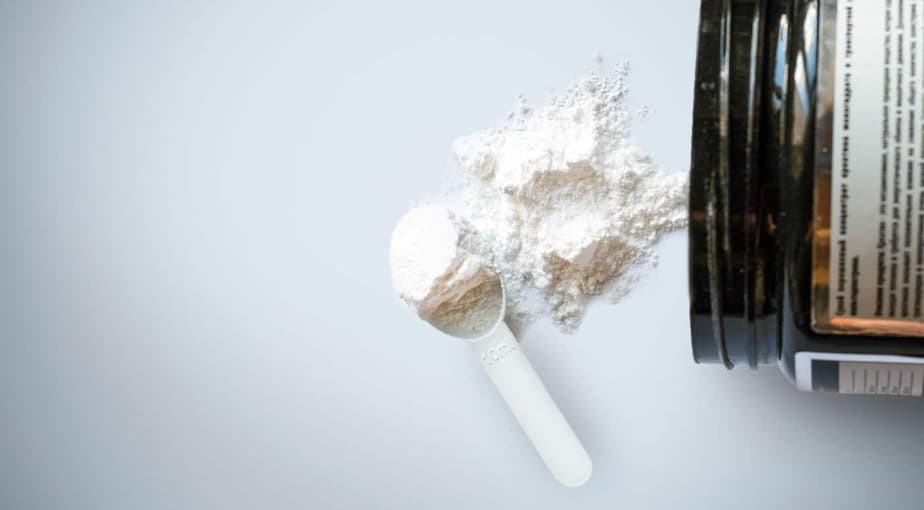
During exercise, ATP is the predominant form of energy for your muscles.
At higher intensities, ATP is rapidly degraded to adenosine diphosphate, or ADP, which is a low-energy molecule that needs to be recovered to ATP for optimal muscle contractile force.
This is where creatine starts to work its metabolic mojo.
In muscle cells, creatine kinase (an enzyme) helps creatine bond with a phosphate molecule. The resulting phosphocreatine can then donate a phosphate molecule to ADP, thereby regenerating ATP.
Pretty neat how our bodies work, isn’t it?
In fact, the phosphocreatine system is the body’s fastest way to regenerate ATP. The conundrum is that it’s also the energy system that gets exhausted quickest.
Once the phosphocreatine system is depleted (usually within 10 seconds of all-out effort), your body relies more on anaerobic glycolytic metabolism to keep you going.
For long-duration activities, like distance running, your muscles primarily rely on aerobic respiration, which uses both glucose and fat to slowly produce ATP.
Takeaway: Increasing the availability of creatine molecules in muscle cells means they can regenerate ATP more effectively. More energy for your muscle cells translates to greater contractile force and capacity to perform work.
Benefits of Taking a Creatine Supplement (Hint: It’s not just for athletes!)
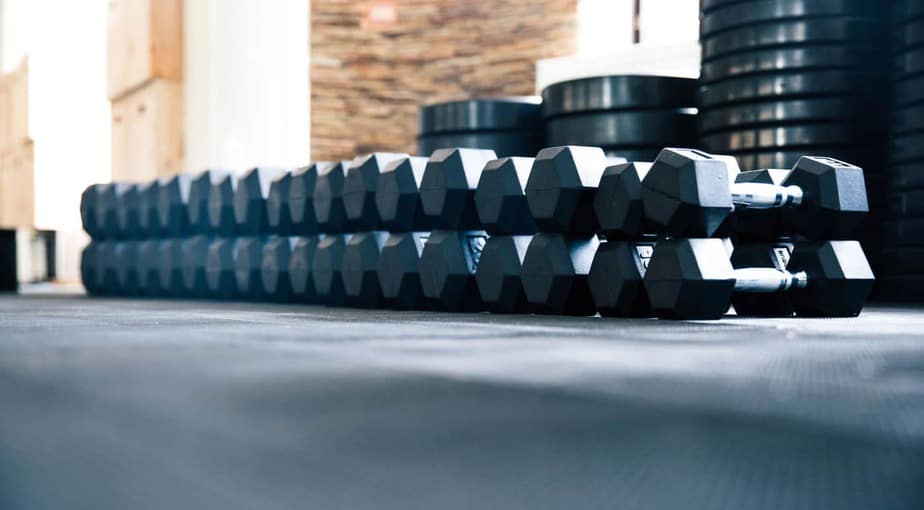
Creatine supplements tend to be most beneficial for athletes and gym-goers who regularly perform high-intensity exercises. Specifically, those that require brief bouts of max (or near-max) effort, such as heavy weightlifting and sprinting.
Research also suggests that creatine supplementation can augment performance in endurance athletes by increasing both muscle glycogen and creatine stores. So yes, even you ultra-marathoners should rejoice in all that creatine has to offer.
As an added benefit, creatine can help reduce muscle catabolism during extended bouts of cardio, making it even more worthwhile for both endurance and high-intensity training.
Ultimately, taking a creatine supplement allows you to get more done on the playing field and in the gym by increasing your strength, stamina, and performance. In conjunction with a proper diet and exercise regimen, creatine also helps pack on lean muscle mass and improve body composition.
This makes creatine one of the best natural supplements you can take for enhancing athletic performance.
But frankly, creatine monohydrate should be a staple in pretty much everyone’s cupboards, even those who aren’t particularly adamant about hitting new personal records in the gym.
For example, creatine has been shown to have neuroprotective, anti-depressive, and anti-diabetic properties. Some research even suggests creatine is good for your heart and may reduce the risk of cardiovascular disease — the leading cause of adult deaths across the globe.
Takeaway: The best creatine supplements provide a range of benefits. While those who participate in high intensity workouts stand to gain the most, the health benefits appeal to a much wider group.
Choosing the Right Creatine Supplement
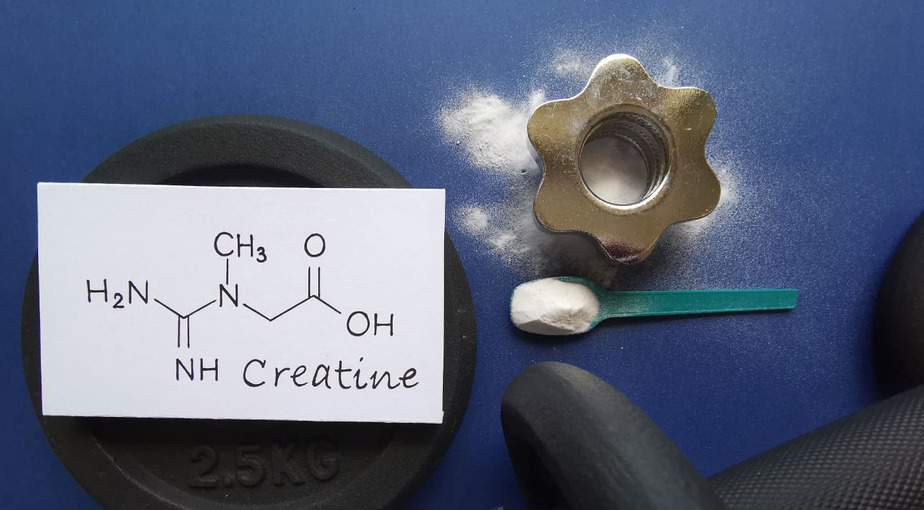
As it stands, CreaPure is the best form of creatine and the gold standard of creatine monohydrate supplements. You can also find creatine monohydrate in a micronized form, which has improved solubility in liquids.
Be wary of companies that tout the benefits and advantages of their “unique” creatine ester or stabilized creatine as being more robust than creatine monohydrate. Trust me on this one, I’ve spent hours upon hours perusing research and there’s simply no contest.
For about every 100 studies on creatine monohydrate, there’s maybe one study on these supposed “advanced” forms of creatine.
The Effectiveness of Advanced Forms of Creatine
So, am I saying these alternative and New Age forms of creatine are ineffective?
Not at all.
Some of the new creatine forms may be quite effective, notably creatine malate, creatine magnesium chelate, creatine citrate, creatine pyruvate, and creatine HCl.
However, there just aren’t many compelling human studies available pertaining to them. Therefore, their benefits are largely theoretical until we have demonstrable evidence to suggest they are superior to creatine monohydrate.
Also, consider that creatine monohydrate is generally the most cost-effective form of creatine on the market.
Many brands offer 500+ gram containers of plain creatine monohydrate for $20 or less, making it a no-brainer if you don’t want to spend a ton of money just to see results in the gym.
For further help, check out our article on how to buy creatine supplements.
Takeaway: Always look closely into the formulas of creatine supplements. Not all forms of creatine are created equal, but that doesn’t mean they aren’t worth considering!
Methodology
Here are the methodology and criteria we used to rank the top five best creatine supplements:
- Quality of creatine used (trademarked, non-GMO, kosher, vegan, etc.)
- Creatine form(s) in the product
- Additional synergistic ingredients
- Flavoring (if applicable)
- Value (cost per serving)
The creatine supplement space is beyond saturated, with seemingly countless varieties. The nice thing about creatine is that it’s a fairly straightforward supplement ingredient.
Despite an overwhelming amount of New Age creatine forms cropping up, creatine monohydrate remains the top dog.
Nevertheless, you’ll find plenty of supplement companies trying to sell you on their “cutting-edge” form of creatine, when the best way to go is tried-and-true creatine monohydrate. But not all creatine monohydrate is the same quality or purity, which is where buying a creatine supplement gets a bit confusing.
I took this factor into consideration as part of my review process while ranking the best creatine supplements. You’re much better off spending a little extra and getting a quality creatine supplement that includes highly purified creatine monohydrate.
The Best Creatine Supplements
Transparent Labs Creatine HMB
You can’t judge a creatine supplement by how popular it is or what the label on the bottle looks like. It’s what’s in the bottle that matters. My top-ranking Creatine HMB by Transparent Labs is a prime example. Not the flashiest label on the market, but its contents provide unrivaled value. Not only does it provide the best form of creatine monohydrate (CreaPure), but it contains added hydroxy-methylbutyrate (HMB), a leucine metabolite that inhibits muscle protein breakdown and promotes muscle protein synthesis. They also tossed in some BioPerine for enhancing the absorption of active ingredients.
Even better, the product is free from gluten, GMOs, artificial preservatives, artificial sweeteners, and artificial coloring. This is about as pure as it gets when it comes to creatine supplements.
If there’s one thing we should all appreciate about Transparent Labs, it’s their unwavering dedication to transparency (hence, the moniker). For all intents and purposes, transparency is the most reverential characteristic a supplement brand can have, given the somewhat clandestine nature of the industry.
After all, you’re a paying consumer. If you take a creatine supplement, you damn well deserve to know exactly what you’re putting in your body. In commendable fashion, this is precisely what you’re getting with Transparent Labs Creatine HMB (and all of their supplements).
Creatine HMB is highly versatile, coming in both flavored and unflavored options for just $39.99 per 30-serving bottle. Since each serving provides a solid 5 grams of CreaPure and 2 grams of HMB, it’s a heck of a value. They even list the amounts of inactive ingredients in their formulas, including sweeteners and flavorings. No other brand is this transparent about their supplements.
Pros
- 5,000 milligrams CreaPure
- Added HMB and BioPerine
- Hypoallergenic and non-GMO
Cons
- A tad pricey
- Only Blue Raspberry flavor
Genius Creatine Powder
The Genius Brand is burgeoning in the supplement space and their product line extends well beyond nootropics. The company stands firm on its commitment to transparent labels and no-bull formulations while maintaining a somewhat catchy brainiac vibe. It’s really no surprise that consumers are drawn to a company that caters to geniuses. I mean, who wouldn’t want to be as smart as Einstein was?
Jokes aside, Genius Creatine Powder is a top-notch creatine supplement. Arguably, its most appealing quality is that it’s about as comprehensive as creatine supplements get. Each bottle comes with 25 servings that provide 5,000 milligrams of creatine, as a blend of creatine monohydrate (as CreaPure), creatine magnesium chelate (as Creatine MagnaPower), and creatine HCl. While the latter two haven’t been as thoroughly researched as creatine monohydrate, preliminary data suggests they are suitable candidates for enhancing athletic performance.
This product also packs 1,600 milligrams of beta-alanine (as CarnoSyn) to support muscle carnosine concentrations. The formula is rounded off with 25 milligrams of AstraGin, an up-and-coming trademarked mixture of Panax notoginseng and Astragalus membranaceus root extracts that are purported to increase the absorption of other supplement ingredients.
It comes in unflavored and Sour Green Apple flavor options, with the latter being 100% naturally flavored and sweetened with organic stevia and monk fruit extracts. If you have a little extra cash to spend on a creatine supplement, Genius Creatine Powder is a worthy investment.
Pros
- High-quality CreaPure
- Added AstraGin and CarnoSyn
- Natural flavors and sweeteners
Cons
- A bit pricey for 25 servings
- Only Sour Green Apple flavor
Jacked Factory CREASURGE
Jacked Factory has had quite a breakthrough in recent years with the signing of several big-name professional bodybuilders, including the 2019 Mr. Olympia Classic Physique Champion Chris Bumstead. Make no mistake, JF has rightfully made their way to the top of the supplement industry thanks to a bevy of quality supplements like CREASURGE.
Jacked Factory also has a knack for creating evidence-based formulas without the premium price tag, and this is exactly what makes CREASURGE such a solid creatine supplement. For just under $20, you get high-quality creatine monohydrate plus ElevATP and pink Himalayan sea salt. This simple but effective blend of ingredients keeps your muscles hydrated and replete with ATP while you’re pumping iron and hitting new PRs.
CREASURGE also comes in a tasty fruit punch flavor that’s free from artificial colors and added sugars. Best of all, you can try CREASURGE risk-free thanks to Jacked Factory’s hassle-free, money-back guarantee on all of their products. When you’re dealing with a company driven by customer satisfaction, it’s hard to go wrong.
Pros
- High-quality creatine
- Contains elevATP
- Delicious flavor
Cons
- Only one flavor option
- Not hypoallergenic
Athletic Xtreme German Creatine
Athletic Xtreme isn’t the most popular supplement brand around, but they do offer one thing that no other supplement company does: A no-frills CreaPure supplement that’s less than $15 per bottle. Finally, a basic creatine supplement where quality meets affordability.
And guess what?
Each bottle packs a whopping 270 grams of CreaPure creatine monohydrate! That’s 56 servings of 5,000 milligrams of CreaPure for just under $15. Considering that most athletes and gym-goers should really only need between 3,000-5,000 milligrams of creatine per day, this hidden gem of a creatine supplement is the best bang for your buck. It’s also unflavored and you can toss it in with any of your other powdered supplements, like pre-workouts and protein powder.
Pros
- Affordable supplement
- Exceptional value
- For all experience levels
Cons
- No flavored options
- Not hypoallergenic
Naked Nutrition Naked Creatine Powder
I have to tip my hat to Naked Nutrition for sticking to their guns over the years. The entire brand is built around the concept of (mostly) single-ingredient formulas with absolutely no fillers or unnecessary additives. Their Naked Creatine Powder follows suit, with each bottle providing 1,000 grams of pure vegan-friendly, non-GMO, heavy-metal tested creatine monohydrate for right around $20.
While it’s not CreaPure, the fact that this creatine is certified vegan and non-GMO tells you it’s good quality. Naked Nutrition also provides the lab results of heavy metal testing to prove that their creatine isn’t contaminated with toxins like arsenic, mercury, and lead. Sadly, many supplement companies use cheap creatine powder that is often high in heavy metals and other adulterants.
Since it’s a single-ingredient formula, Naked Creatine Powder is flavorless and free from food colorings. You can mix it with just about any liquid you choose or add it to other powdered supplements that you take.
Pros
- Pure high-quality creatine
- Great value
- Heavy-metal tested
Cons
- Not CreaPure, but close
- No flavor
FAQ: Everything You Need to Know about Creatine Supplements
To find the best creatine supplements, you need to know what you want and what you need.
But to feel confident about this knowledge, we may need to answer a few more questions for you. In this section, we’ll do just that.
Just click on the question in blue for a drop-down answer!
Is creatine safe?
Yes. Creatine has an exceptional safety profile in the majority of the population, even teenagers and young adults who are big into athletics.
About the only “side effect” of creatine is that you might urinate more frequently or feel bloated when you take it. Frankly, this is just a sign that it’s working!
One of the major benefits of creatine is that helps your muscle tissue absorb and retain water, so drink plenty of water while you take creatine supplements.
As a disclaimer with any nutritional supplement, if you have pre-existing health issues — particularly renal complications — you should consult with a physician before you use creatine.
Creatine is broken down to creatinine which is consequently filtered out through the kidneys and excreted in the urine. If you have renal impairment, it can lead to an accumulation of creatinine in the blood and/or kidneys.
Bear in mind, this does not mean creatine is bad for the kidneys. It only means that taking creatine can be unsafe if your kidneys aren’t functioning properly.
When is the best time to take creatine?
Research shows that creatine is best absorbed after intense training due to the acute physiological response to exercise that relies predominantly on the phosphocreatine and anaerobic energy systems.
Post-workout is also the ideal time to drink some fast-acting whey protein powder, which you can learn more about in Rave Reviews’ Best Protein Powder Guide.
Consuming some carbohydrates may also be beneficial when taking creatine — especially after a tough workout — to help restore muscle glycogen and draw more water into muscle cells, all of which create a more anabolic environment.
I’ve heard that I need to consume 50+ grams of sugar with creatine for it to be fully absorbed. Is that true?
Absolutely not. This misapprehension stems from the idea that insulin — the hormone that signals your cells to remove sugar (glucose) from the bloodstream — is requisite to creatine absorption.
However, this is simply not the case. You don’t need to consume simple sugars to increase the absorption of creatine. In fact, creatine monohydrate is nearly 100% bioavailable when taken orally by itself.
There is some evidence that suggests the resultant insulin spike after consuming a hefty dose of glucose can further enhance the uptake of creatine into muscle cells, but this mechanism remains somewhat misunderstood and controversial.
For the pragmatist who doesn’t want to drink a ton of simple sugars, which is generally a poor health decision in its own right, it’s best to simply take creatine by itself or with a more modest amount of both carbohydrates and protein.
What should I stack with creatine?
Stacking creatine with other supplements can produce further benefits that may not be achievable by a creatine-only supplement. For example, fenugreek extract, which contains 4-hydroxyisoleucine, appears to increase insulin-mediated creatine accumulation in skeletal muscle, as does R-alpha-lipoic acid (R-ALA).
In general, creatine stacks well with pretty much any other post-workout supplements you might take, including whey protein, HMB, carbohydrates, and BCAAs.
It also goes well with many pre-workout supplements (which is why it’s often included in them). One study found that athletes who took a combination of beta-alanine and creatine built more muscle and lost more fat than athletes who took creatine monohydrate alone.
Creatine powder vs. creatine pills vs. liquid creatine — which is best?
Creatine monohydrate is quite unstable in aqueous solutions and spontaneously degrades to creatinine.
This is why it’s best to drink creatine monohydrate within 15 minutes of mixing it in liquid. Manufacturers may add some stabilizing agents, like citric acid and bicarbonate, to their pre-mixed liquid creatine beverages, but the reliability and shelf-life of these products remain very limited.
Creatine pills are an option if you’re averse to creatine powder, but be prepared to swallow several horse pills if you go that route.
For practicality’s sake, powdered creatine is the way to go.
What’s the best form of creatine?
While a handful of the newer creatine forms are promising in theory, the research to substantiate their purported benefits is significantly lacking.
Contrast that with the immense body of evidence supporting the performance-enhancing properties of creatine monohydrate and you start to realize there’s no contest: The best form of creatine is creatine monohydrate.
Now, does this mean that taking a creatine supplement with creatine malate or magnesium creatine chelate won’t help you get stronger and perform better in the gym or on the playing field?
Of course not.
Some of the creatine monohydrate alternatives are certainly viable options if you want to enhance your athletic performance and build more muscle. In the not-too-distant future, more research on different forms of creatine will lead us to a better understanding of what value creatine pyruvate and creatine nitrate truly hold.
For now, the logical choice remains pure creatine monohydrate.
